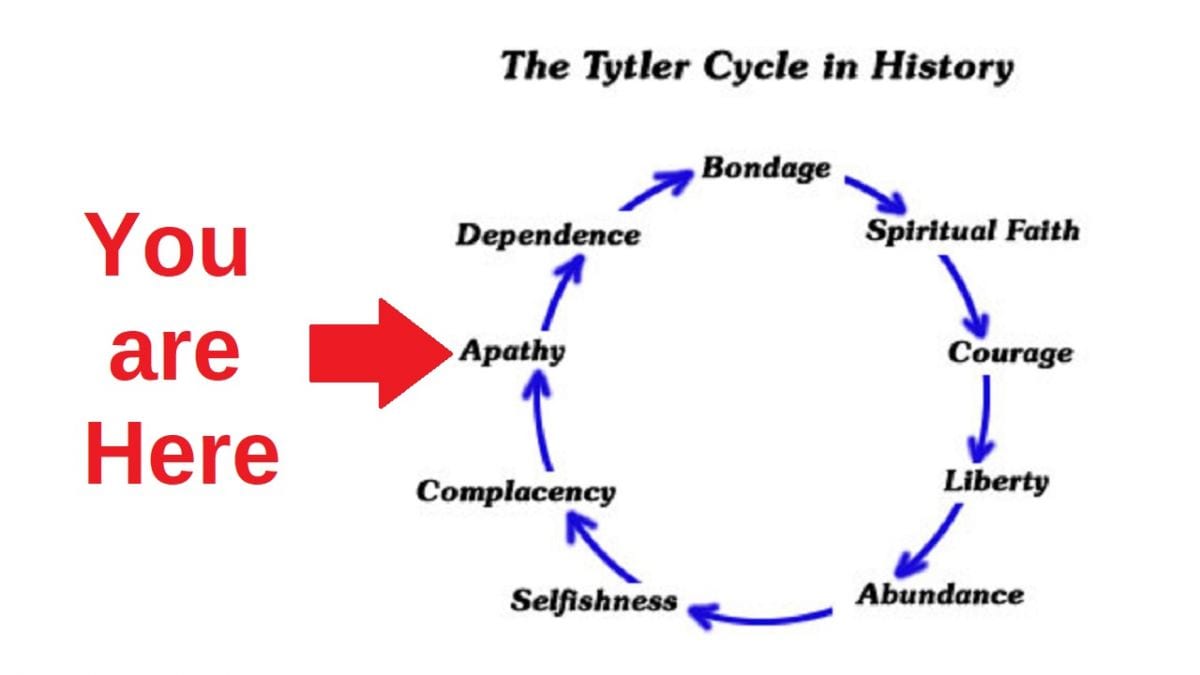Alexander Tytler was a Scottish advocate, judge, writer and historian who served as Professor of Universal History, and Greek and Roman Antiquities at the University of Edinburgh. Tytler lived at the same time as the American founding fathers and described a repeating cycle in history. Tytler found that democratic societies went through this same cycle again and again and that the cycle lasted roughly 200 years each time.
The idea states that democracy is temporary in nature. It is difficult to exist as a permanent form of government. A democracy will continue to exist up until the time that voters discover they can vote themselves generous gifts from the public treasury. From that moment on, the majority always votes for the candidates who promise the most benefits from the public treasury, with the result that every democracy will finally collapse due to loose fiscal policy, which is always followed by a dictatorship. 
Tytler said the repeating cycle starts out with a society in bondage (see feature framework chart above). Then it goes in the following sequence:
- Bondage – a point of degeneration and despair where no change will help – centralized control.
- Spiritual – people oppose the conditions and search for some unity in a common cause.
- Courage – the fight for freedom.
- Liberty – success, the formation of codified freedom with the promise of opportunity.
- Abundance – maturing of government, material growth, and prosperity.
- Selfishness – the greed of material gain creates corrupt special interest groups, often using the levers of government.
- Complacency – the sense of entitlement of legacy groups, with whining and complaining of the developing conflicting interests.
- Apathy – accept no responsibility for problems and blames everyone else for a system of corruption.
- Dependency – control of independence to control corruption and the centralization of freedom, leading back into bondage.
The cycle is long and requires that generations pass so they can forget how they got where they are in their present phase of the cycle. The cycle rarely reverses, though mini-cycles can appear within the larger cycle. Note that this cycle is mostly referring to the masses, one would have to superimpose the dynamics of how other axes (economic, political, and social to name a few) intersect with this framework model.
The other thing would be that different people can be at different points in the framework model – phases could somewhat overlap at a single point in time. Given this framework model, RFS1 asks, where are we at in this model? For sure some of us are still in the Selfish and Complacency phase of the framework model. But along about 2010, the birth of the cultural war going mainstream, we have moved into the Apathy phase.
Many sense that something has changed and something is wrong with the ways things are going. We are in the midst of a generational political divide where we are blaming the “other.” Most are sitting back and letting it happen, but you don’t have to – join Strike Force and take a stand.
RFSO original article syndication source.



Join the conversation!
Please share your thoughts about this article below. We value your opinions, and would love to see you add to the discussion!